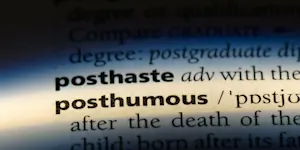What Makes This Word Tick
"Lucid" is an adjective that brightens up the room with clarity and sharpness. It's like a beam of light in the fog, ensuring everything is crystal clear. Whether you’re describing an easy-to-follow explanation or a moment of enlightenment, "lucid" is your go-to word to brighten up the scene.
If Lucid Were a Person…
Lucid would be that friend who can unravel a complex movie plot without breaking a sweat, leaving everyone nodding in understanding and admiration. Always alert and articulate, this person is the one who can make tedious concepts seem as transparent as a freshly cleaned window.
How This Word Has Changed Over Time
"Lucid" hasn’t drifted too far from its origins. Originally stemming from Latin "lucidus," meaning "light" or "bright," the modern usage retains that sense of illuminating clarity—whether mentally sharp or literally bright.
Old Sayings and Proverbs That Use Lucid
While "lucid" itself might not be nestled in traditional proverbs, the concept of clarity and understanding shines through in old sayings like "coming into the light" and "as clear as day."
Surprising Facts About Lucid
A lucid moment doesn’t just occur in the daytime; it’s often used to describe those unexpected flashes of insight or understanding that can happen any time, day or night. It’s also a term used in dreaming—when one becomes aware that they’re dreaming, it’s known as a lucid dream.
Out and About With This Word
You might hear this word in courtrooms or classrooms, where clarity is key. Or perhaps late night at a diner, where a scribbled-on napkin contains a lucid idea for a best-selling novel.
Pop Culture Moments Where Lucid Was Used
In the realms of self-help and motivational speeches, "lucid" finds its perfect medium. And let’s not forget the movies, where characters might have "lucid dreams" to solve mysteries or save worlds.
The Word in Literature
"Lucid" illuminates the pages of mystery novels where everything is finally explained, or in memoirs where the author shares a moment of deep insight. It’s a favorite among authors aiming to make an idea effortlessly understood.
Moments in History with Lucid
Think of the Age of Enlightenment, where clarity of thought and reason shone a light through the dark corners of superstition and ignorance—moments that could surely be called "lucid."
This Word Around the World
In French, "lucide" also means clear and coherent. The concept of clarity transcends cultures, whether you say "claro" in Spanish or "kristallklar" in German.
Where Does It Come From?
"Lucid" traces its roots to the Latin "lucidus," which means "light" or "bright." It popped into English vocabulary around the 16th century, bringing with it the glow of easy understanding.
How People Misuse This Word
Sometimes, people use "lucid" to mean just "organized" or "ordinary," missing its more vibrant undertones that imply brightness or clarity.
Words It’s Often Confused With
Vivid: While both relate to clarity, "vivid" focuses more on detail and lifelikeness.
Lurid: Despite its similar sound, lurid actually refers to something shocking or sensational, not clear or illuminated.
Additional Synonyms and Antonyms
Synonyms for "lucid" include articulate, clear, and coherent. Antonyms would be muddled, confusing, and ambiguous.
Want to Try It Out in a Sentence?
After her explanation, what felt like a bewildering puzzle became as lucid as looking through a well-polished lens.
















